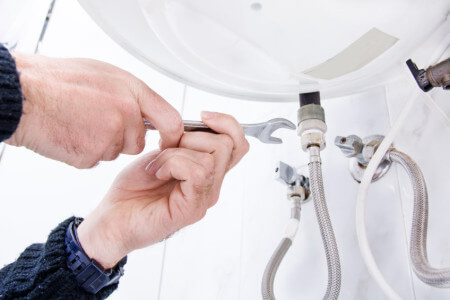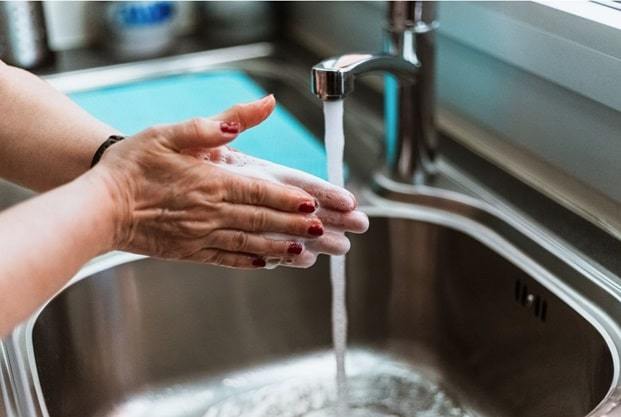Any individual may have their own individual opinion in relation to Expert Tips for Managing a Plumbing Emergency Until Help Arrives.

Plumbing emergencies can strike any time, creating tension and prospective damage to your home. Whether it's a burst pipe, a clogged drain, or a dripping tap, recognizing just how to take care of the circumstance until a specialist plumbing professional arrives can conserve you from more issues. This post offers vital emergency situation pipes ideas to assist you reduce damages and reclaim control during a plumbing situation.
Shut off the Supply Of Water
The initial step in any kind of plumbing emergency is to shut down the supply of water. For localized concerns, such as a leaking faucet or commode, switch off the valve near the fixture. When it comes to a major leak or ruptured pipe, find your home's main water shut-off shutoff and turn it off immediately. Recognizing the place of these valves ahead of time can save valuable time during an emergency situation.
Address Little Leakages with Momentary Fixes
Tiny leaks can promptly end up being significant troubles if left unattended. Make use of these short-term fixes up until professional aid arrives:
While these solutions aren't permanent, they can assist minimize water loss and damages.
Unclog Drains Pipes Safely
A clogged up drain can be an irritating and messy problem. Below's how to tackle it:
If these techniques don't function, avoid utilizing too much force, as it might worsen the obstruction.
Take Care Of Overflowing Toilets
An overflowing bathroom can create immediate mayhem. Below's what you should do:
Turn off Your Water Heater
In specific emergency situations, such as a ruptured pipeline, it's smart to turn off your hot water heater. This stops getting too hot or damages to the system when water quits streaming. Shut off the power supply to the water heater (electric or gas) and let it cool down to avoid potential hazards.
Temporarily Stop a Ruptured Pipeline
A burst pipe can result in significant water damage in mins. To minimize the concern:
Call an expert plumbing technician right away to deal with the problem completely.
Manage Frozen Water Lines Thoroughly
In cooler environments, frozen pipes are an usual emergency situation. If you think a frozen pipeline:
Prevent More Damage
Taking fast activity to minimize damages can save you time and money over time. Here's exactly how:
. Have an Emergency Situation Plumbing Package
Prepare a basic pipes emergency set to handle minor concerns efficiently. Your package ought to consist of:
Having these devices on hand can make a substantial difference in your capacity to manage emergency situations.
Know When to Call an Expert.
While quick fixes can aid briefly, particular plumbing concerns need prompt expert focus. Call a plumbing technician if:.
Promptly calling a professional makes sure the concern is settled correctly and stops more problems.
Final thought.
Pipes emergencies can be frustrating, yet with the right knowledge and devices, you can handle the scenario efficiently up until aid shows up. By shutting off the water system, attending to tiny leakages, and making use of short-lived fixes, you can minimize damage and keep your home safe. Keep in mind, these ideas are short-lived solutions; always seek advice from an accredited plumbing technician to manage the origin of the trouble. Prep work and fast reasoning are your ideal allies in any kind of plumbing emergency.
8 Helpful Tips for Managing Plumbing Emergencies at Home
If your plumbing system hasn’t failed once, wait for it because almost everyone has a story to tell. Sometimes, it could be simple emergencies such as a leaking pipe, a blocked cistern, or even a big burst pipe. In situations like this, you need to have some handy tips to save you some money and from possible damages.
Take care of minor issues early.
Sometimes, you could have avoided an emergency by taking proactive measures while it was still early. Some major plumbing emergencies can be a result of an ignored minor issue. We recommend that you have items like plumbing tapes and other related items. A plumbing tape can allow you to manage minor leaks before the plumber arrives.
Cut off the water supply.
This tip is essential in almost any type of leakage problem. For problems like minor leakages in the toilet or kitchen, turn off the supply that takes water to the affected pipes. If the leakage is a major pipe, you must shut off the supply valve to the entire building. This will help you avoid flooding your home and neighbors if you share a flat.
Know your plumbing system
Folks typically move into a new apartment without understanding the water supply around the building. This can prove disastrous if a water emergency arises and the plumber is far away. The previous tip will prove useless if you don’t practice this one. More importantly, know where your water shut-off valve is located – you’ll need that knowledge to prevent potential home floods.
Have some common handy tools
There are lots of plumbing emergencies that you can handle without hiring a plumber. That’s why you must keep some tools available always. Some tools that you can use to fix simple plumbing emergencies easily include plumbing tapes, screwdrivers, thread seal tapes, plungers, pliers, tape measures, and rubber gloves.
Insulate your pipes from cold
You’ll save yourself from many plumbing expenses if you protect your water pipes from the cold. This is because of the harmful effects that cold weather can have on your pipes. During winter, your pipes can burst from being overly expected to freezing temperatures. So, make sure insulators are there to keep the pipes working correctly.
Avoid practices that will clog your toilet.
Many people indulge in practices that can damage the plumbing system of the entire building. One of these is when they use their toilet to dispose-off garbage. They flush all kinds of things, such as paper towels, bandages, hairs, female sanitary products, etc., down the toilet. This will block your toilet in the long run, incurring unnecessary expenditures. Dump such waste in the trash instead.
Check your dials regularly.
Sometimes, there could be leakages in your home without noticing them in time. So, constantly monitor your water meter dial. If the dial is reading when there is nobody using water, this is an indicator that there is leaking. Check for leaks immediately. Call a plumber as soon as possible if you can’t find any.
https://www.constructionplacements.com/8-helpful-tips-for-managing-plumbing-emergencies-at-home/

Do you appreciate more info about Plumbing Emergencies: Tips on What To Do Before? Create a comment further down. We'd be glad to listen to your responses about this write up. In hopes that you visit us again later on. Make sure you take the time to distribute this post if you liked it. I thank you for your readership.
Call